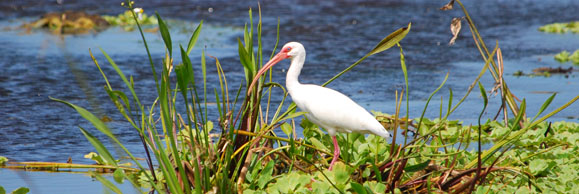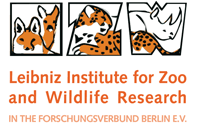Veterinary PhD Programs: Wildlife, Infectious Diseases, Food Safety


Are you ready to take the next step?
You’ve been dreaming of doing something out of the ordinary for quite a while now, but the odds and ends of life keep getting in the way. I know how it is.
So that’s why I’m here again to share about some unique educational opportunities that could be just what you need. These funded PhD programs, located all over the world, will let you explore a new field while opening new windows on an uncommon veterinary career.
You’re not going to get rich, and one more degree isn’t going to be some sort of magic ticket to professional success. It will, however, connect you to a whole new community of interesting colleagues and meaningful research projects.
Wildlife Ecotoxicology at the University of Florida
Unfortunately for our wildlife and their environments, this is an emerging field with all sorts of interesting career possibilities. Wildlife toxicologists work for everyone from oil companies to universities, government regulatory agencies to conservation organizations.
 This PhD position through the University of Florida will specifically have you studying the effects of methylmercury contamination on reproduction in free-ranging long-legged wading birds in the Everglades of Florida. Sounds like a pretty cool combination of field work and lab analysis that will set you up well for this exciting new career.
This PhD position through the University of Florida will specifically have you studying the effects of methylmercury contamination on reproduction in free-ranging long-legged wading birds in the Everglades of Florida. Sounds like a pretty cool combination of field work and lab analysis that will set you up well for this exciting new career.
The position is provided with a stipend, tuition, and field research funds, and the application is due by 15 March for an August 2014 start. Get all the details in this PDF.
Epidemiology of Campylobacter in Kenya through the Royal Veterinary College
I’ve learned firsthand that poultry is one of the most important sources of animal protein worldwide. This PhD studentship through the Royal Veterinary College, London, will aim to better understand the epidemiology of campylobacter infection in Nairobi, Kenya, by investigating its public health significance, transmission routes, contamination mechanisms, possible drivers and options for control.
The three-year program will involve travel between London and Nairobi, and you will be involved with both data collection from animals and people as well as epidemiological modeling of your results.
 Unfortunately, these funded studentships through the RVC are only available to citizens of the United Kingdom and European Union. The application is due on 23 February, 2014, and you can find all the details here.
Unfortunately, these funded studentships through the RVC are only available to citizens of the United Kingdom and European Union. The application is due on 23 February, 2014, and you can find all the details here.
African Carnivore Energetics & Biomechanics through the Royal Veterinary College
Here’s another cool opportunity through the RVC to spend some time in Africa while picking up serious skills in wildlife research. The PhD studentship is part of a major grant called “LOCATE: Locomotion, hunting, and habitat utilization among large African carnivores and their prey.”
The description sounds pretty awesome, involving GPS tracking collars, aerial filming systems (aka drones), and lots of wildlife capture. When you’re not in London, you’ll be based at the Botswana Predator Conservation Trust while traveling all over southern Africa.
Again, this program only comes with funding if you are from the UK or EU. You can learn about the details at this link, and also explore a very similar position focused on African migratory herbivores here.
Cancer in Tasmanian Devils at the University of Tasmania
Yes, you read that right! Did you know that the endangered Tasmanian devils suffer from a novel contagious cancer? This PhD position will put you right in the middle of the action in working to prevent the extinction of this unique species, while you acquire skills in field trapping and molecular genetics.
 You’ll also get to live in the very fun and friendly city of Hobart while based in the Zoology Department at the University of Tasmania.
You’ll also get to live in the very fun and friendly city of Hobart while based in the Zoology Department at the University of Tasmania.
Scholarships are available for students from all over the world, but they must be applied for separately and are not guaranteed. Read all the details in this PDF.
Wildlife Parasitology through the Leibniz Institute for Zoo and Wildlife Research
 Does the idea of spending two or three years in Berlin, Germany, seem appealing but a bit intimidating? Well here’s your chance to experience Europe while on the fast-track to a PhD at Germany’s premier wildlife research institute. Best of all, the whole degree is in English!
Does the idea of spending two or three years in Berlin, Germany, seem appealing but a bit intimidating? Well here’s your chance to experience Europe while on the fast-track to a PhD at Germany’s premier wildlife research institute. Best of all, the whole degree is in English!
There are four potential projects:
• Transmission of pathogens in an urban predator-prey system using the goshawk and the feral pigeon as an example.
• Haematophagous arthropods as vectors for avian malaria and selected viruses.
• Parasite and pathogen fauna of Anatidae and their potential as vectors for swimmer´s itch.
• Identification and prevalence of Sarcocystis species in mammals and birds as intermediate and definitive hosts.
I just got an e-mail from one of the graduate program coordinators who confirmed that the program is open to applicants worldwide and that the net stipend (after health insurance and other social benefits have been taken out) would be around 1200 Euro per month.
Read all about the institute and the projects at this link. Applications are due by 11 February 2014 for a June 2014 start date!
So there you have it. Who’s to say you can’t just run off to Germany, Australia, Africa, England, or Florida for a few years? All of these opportunities will provide you with just enough financial support to live off, and they will open doors that you currently can’t even imagine.
If you don’t enjoy the path you’re currently on as a veterinarian, these are just a few examples of ways that you can branch out and try something new. It won’t be easy, but that never stopped you before, did it?
Will you consider taking the crazy step of submitting an application to one or more of these PhD programs?
What’s holding you back?


Comments
Thanks for the tip, Elliott! newly DVM graduate (no Msc) cannot apply for any of them, right?
Thanks for chiming in, Anna! I think you’re right: these PhD programs do not require a Masters degree as a pre-requisite for admission. A DVM will definitely be enough, as would a BVSc.
Hey, Sylvie! I’m getting ready to graduate veterinary school in 2015 and I am looking at applying for PhD programs. My understanding is that so long as you have the DVM, you can go straight into the PhD program or else you can get your MSc along the way in the same program.
Cheers!
Anna
Thank you Anna and Elliott!
Hello
This is umer khalifa from India. I am an post graduate student in M.SC Marine Studies & Coastal Resource Management. I am looking for PhD opportunities in Marine Biology at abroad. Could you please let me know, if know any such opportunity.
Looking forward from you
Hi Folks,
Just a note to say that Cornell University has a PhD program in Zoology and Wildlife conservation that is partnered with the Smithsonian Conservation Biology Institute. Web address below provides some details:
http://www.vet.cornell.edu/BBS/research/WildlifeConservation.cfm
Good to know, thanks John.
Hi
I will complete my Masters in virology this july’15 and am looking forward to work in field of wildlife biology research and conservation.
can you guide